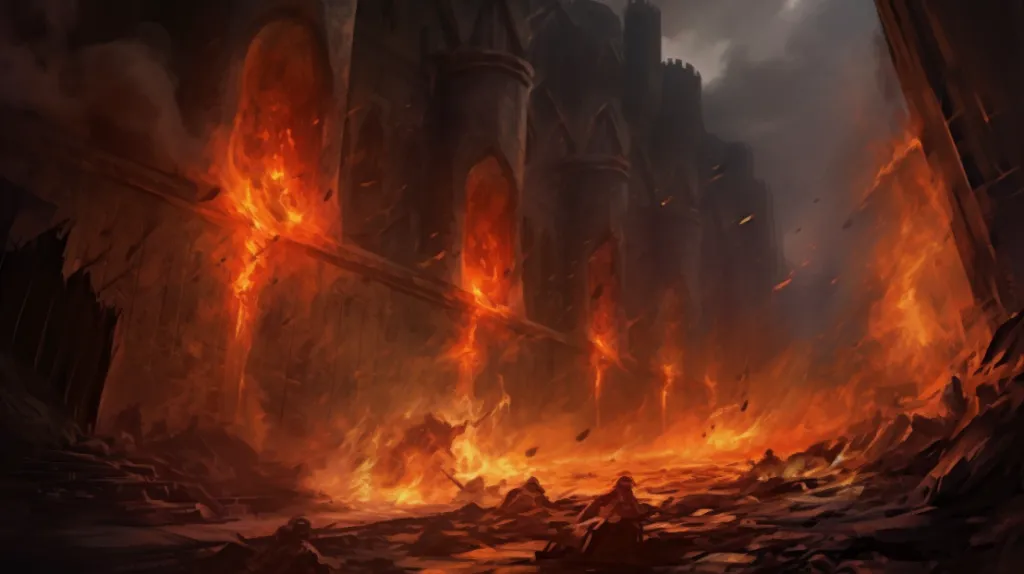Zecharia 5:2 – For I,’ declares the LORD, ‘will be a wall of fire around her [protecting her from enemies], and I will be the glory in her midst.’”
Zechariah prophesies during a time of restoration for Jerusalem after the Babylonian exile. The imagery used in this verse emphasizes both protection and the divine presence among His people.
“A Wall of Fire”:
- Protection: The phrase “a wall of fire” (חֹשֶׁךְ אֵשׁ, ḥoshekh esh) signifies a powerful barrier of divine protection. In Hebrew thought, fire symbolizes God’s presence and purifying power. This imagery suggests that God Himself will be a protective force, safeguarding Jerusalem from its enemies.
- Divine Presence: Fire represents the Shechinah, the divine presence that dwells among the people. This indicates that God is not just offering physical protection but is also intimately involved in the life of the city.
“All Around”:
- Comprehensive Protection: The phrase “all around” emphasizes that God’s protection is complete and encompassing. It reassures the people that they are surrounded by divine safety, no matter the threats they face.
“I Will Be the Glory in Her Midst”:
- Kavod (Glory): The term כָּבוֹד (kavod) refers to God’s glory, His weighty presence that brings honor and significance. To say that God will be “the glory in her midst” suggests that His presence will not only protect but also give identity and purpose to the community.
- Community Restoration: This promise of glory indicates a restoration of not just physical safety but spiritual vitality. The people of Jerusalem will experience God’s favor and blessing, which is integral to their identity as His chosen ones.
Covenantal Assurance:
- The verse reflects the covenant relationship between God and Israel. It reassures the people that despite their history of exile and hardship, God remains committed to their restoration and protection, affirming His promises.
Prophetic Fulfillment:
- This verse can also be seen in light of future messianic hope, where God’s protective presence will ultimately be fulfilled in the coming of the Messiah. The promise of divine glory in their midst points toward a future where God’s presence is fully realized among His people.
Conclusion
Zechariah 2:5 encapsulates profound themes of divine protection, presence, and restoration. The imagery of a “wall of fire” highlights God’s active role as a protector, while the promise of His glory signifies the spiritual renewal of the community. This verse serves as a powerful reminder of God’s faithfulness to His people throughout their trials and His commitment to dwelling among them.
